
Florent Domine
Professeur, chimie, Université Laval
Florent Domine est professeur associé au département de chimie et directeur de recherche au CNRS, dans l'unité mixte Takuvik créée par le CNRS et l'Université Laval. Ses travaux portent sur le climat dans les régions arctiques et boréales. Il étudie notamment les interactions entre végétation, neige, pergélisol et climat, et cherche à quantifier les nouvelles rétroactions climatiques que ses recherches découvrent.
Less ![]()


Florian Stadtler
Lecturer in Literature and Migration, University of Bristol
My main research interests lie in colonial and postcolonial literatures and film, especially South Asian writing in English and the work of Salman Rushdie, British South Asian history, literature and film, Indian popular cinema and its representation in South Asian fiction. More broadly I am interested in twentieth-century and contemporary literatures and the development of the novel.
My monograph, Fiction, Film and Indian Popular Cinema: Salman Rushdie's novels and the Cinematic Imagination highlights the way in which Rushdie draws on the conventions, style and politics of Indian Popular Cinema in his exploration of the postcolonial subcontinent and the South Asian diaspora in fast-changing economic, social and global contexts.
I have also published extensively on South Asian British history, including the case of Udham Singh, Aubrey Menen, South Asian soldiers in the First and Second World Wars, and South Asian seafarers. I have edited special issues for Wasafiri: The Magazine of International Contemporary Writing - India in Britain: Cross-Cultural Encounters, which highlights the vibrant South Asian publishing culture of 1930s-40s Britain; and a special issue on Writing Hong Kong (co-edited with Jeffrey Mather).
I have completed the editing of a major new collection of essays for Cambridge University Press, Salman Rushdie in Context which is published in April 2023.
Historically invested, my research draws extensively on archival collections in Britain, India and the USA.
Less ![]()

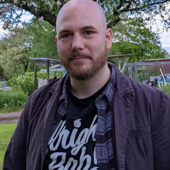
Florimond Gueniat
Associate Professor in Mechanical Engineering, Birmingham City University
Less ![]()

Floyd W. Shockley
Entomologist and Collections Manager, Smithsonian Institution
I oversee all aspects of collection management, logistics, purchasing and property management for the Department of Entomology, providing oversight of the National Insect Collection (100,000+ type specimens, 35 million+ specimens) and interacting with staff from the three agencies and 4 units that comprise the Combined Entomology Department (SI, USDA-SEL, USDA-APHIS, and DoD-WRBU).
My research interests focus on the taxonomy and systematics of fungus feeding beetles. I reconstruct phylogenetic relationships of Endomychidae using cladistics, likelihood and Bayesian techniques incorporating both morphological and molecular evidence, and use the resulting evolutionary hypotheses to explore patterns of change in physical, behavioral, and ecological characteristics.
Less ![]()


Foteini Stavropoulou
Senior Lecturer in Operations and Supply Chain Management, Liverpool John Moores University
Foteini holds a BSc in Management Science and Technology (2006) and a PhD in Operational Research (2012) from the Athens University of Economics and Business. She also holds an MSc/DIC in Computing Science (2008) from Imperial College London. Her research interests include modelling and optimisation in transport, logistics and operations and supply chain management.
Languages
Greek, Modern (1453-)
Degrees
2012, Athens University of Economics and Business, Greece, PhD
2008, Imperial College London, United Kingdom, MSc
2006, Athens University of Economics and Business, Greece, BSc (Hons)
Certifications
Liverpool John Moores University, United Kingdom, Postgraduate Certificate in Learning and Teaching in Higher Education
Academic appointments
Senior Lecturer in Operations & Supply Chain Management, Liverpool Business School, Liverpool John Moores University, 2013 - present
Less ![]()

Frabizio Carmignani
Current teaching areas:
- Macroeconomics, Quantitative methods
Research expertise :
- Economic growth and macroeconomics
- The macroeconomics of natural resource abundance
- Macroeconomic analysis of aid for health
- Development economics
- The economics of civil conflict and post-conflict countries
- Panel models and systems of equations
Less ![]()
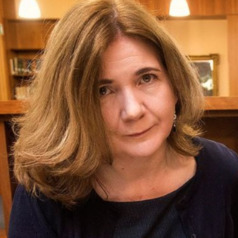
Fran Brearton
Professor of Modern Poetry, School of Arts, English and Languages, Queen's University Belfast
I teach primarily in the areas of 19th and 20th century Irish literature, modern poetry - particularly contemporary Irish and British poetry - and modernist literature. I’ve supervised research students in the areas of 19th & 20th century Irish literature, 20th-century British, Irish, and American poetry, and 20th-century British fiction, and welcome proposals in the areas of modern British and Irish literature. I also supervise the critical component of creative writing PhDs (fiction and poetry). I convene and teach on the MA in Poetry: Creativity and Criticism, and also on the MA in English Literary Studies.
My research interests are primarily in British and Irish Poetry of the 20th and 21st centuries, and in the literature and culture of the First World War, literary modernism, and war writing throughout the 20th century. I also have a particular interest in the work of Robert Graves – his poetry, historical fiction, criticism, and autobiographical writings.
My first book was a study of the effects of the First World War on 20th-century Irish poetry; more recently, I co-edited (with Alan Gillis) The Oxford Handbook of Modern Irish Poetry. I've just edited a new edition of Robert Graves's First World War memoir, Good-bye to All That, for Penguin Classics (2014) and am currently working on a study of Graves's writings.
Less ![]()

Frances Doyle
Senior Lecturer in Clinical Psychology, Western Sydney University
I am a researcher, educator, and clinical psychologist focussed on improving child and family wellbeing. I have completed a PhD in Psychology, Master of Clinical Psychology, Bachelor of Arts - Psychology (Hons 1), and Bachelor of Business Administration.
Less ![]()
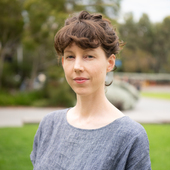

Frances Fowle
Personal Chair of Nineteenth-Century Art, History of Art, The University of Edinburgh
Frances has a joint post with the University of Edinburgh and the National Galleries of Scotland. She has curated numerous international exhibitions and her main area of specialism is French and Scottish nineteenth-century art, with an emphasis on collecting, the art market, national identity, cultural revival and artistic networks.
Frances is Chair of the Association for Art History and Senior Trustee of the Burrell Collection in Glasgow. She is on the Board of the International Art Market Studies Association (TIAMSA) and is patron of the Paisley Museum Reimagined cultural renovation project. She is the 2022 Van Gogh Museum Visiting Fellow and is on the advisory Board of the Van Gogh Worldwide project, a digital platform for all works by Vincent Van Gogh. She is also a Group Leader for Art UK and is on the Editorial Board of the Journal of the Scottish Society for Art History.
She began her career working for Sotheby's auctioneers and, briefly, as an arts journalist. She gained her PhD at the University of Edinburgh in 1994 and has taught at the universities of Aberdeen, Glasgow and at Edinburgh College of Art. She worked in the curatorial department at Tate Britain before joining the National Galleries of Scotland in 2001. She was appointed to her current post in 2005.
Less ![]()

Francesca Farrington
Lecturer in Commercial Law, University of Aberdeen
Dr Francesca Farrington is a Lecturer of Commercial Law at the University of Aberdeen. Her research analyses the relationship between legal reforms and development outcomes from a global and pluralist legal perspective by adopting critical approaches to law and economics, comparative law, and jurisprudence. In addition, her research investigates the substantive and procedural barriers to the attainment of justice, with especial emphasis on transnational proceedings involving power asymmetries which may shield corporations from scrutiny. She is a member of the Anti-SLAPPs Research Hub at the University of Aberdeen and the Rule of Law and Economic Development (ROLED) Working Group at McGill University. She was recently appointed as an Associate on the POPBACK project (funded by the NORFACE network) which examines democratic backsliding and the crisis of the rule of law in the European Union from a multi-disciplinary perspective.
Less ![]()
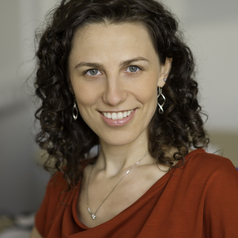
Francesca Gino
Professor of Business Administration, Harvard Business School
Francesca Gino is a professor of business administration in the Negotiation, Organizations & Markets Unit at Harvard Business School. She is also formally affiliated with the Program on Negotiation at Harvard Law School, with the Mind, Brain, Behavior Initiative at Harvard, and with the Behavioral Insight Group at Harvard Kennedy School. Professor Gino teaches Decision Making and Negotiation in the MBA elective curriculum and in Executive Education programs at the School. She co-chairs an HBS Executive Education program on applying behavioral economics to organizational problems. She also teaches a PhD course on Behavioral Approaches to Decision Making and a PhD course on Experimental Methods.
Less ![]()
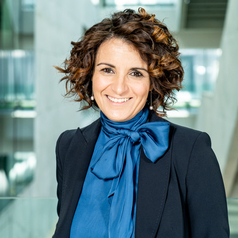
Francesca Lecci
Associate Professor of Practice in Government, Health and Not for Profit, Bocconi University
I am an Associate Professor of Practice in Government, Health and Not for Profit at SDA Bocconi School of Management and the coordinator of the research area on Healthcare Management at CeRGAS (the Centre for reasearch on health and social care management, economics and policy of Bocconi University)
Less ![]()


Francesca Perugia
Senior Lecturer, School of Design and the Built Environment, Curtin University
Francesca Perugia is an early career housing researcher with extensive knowledge of the housing sector in Australia and internationally. In her academic work, Francesca brings the knowledge and leadership skills gained through research and advocacy in the not-for-profit sectors at a European level, the professional knowledge of the construction industry, and a deep understanding of institutional and governmental processes, ethic, directions, and priorities relative to policy development and delivery of complex affordable housing projects.
Less ![]()

Francesca Sidoti
Postdoctoral Research Associate, University of Technology Sydney
Francesca Sidoti is a cultural studies and cultural geography scholar, who specialises in place-oriented, qualitative research across academic and applied settings. She is particularly interested in how places shape and enduringly affect people’s experience, including how this manifests in the digital space. Francesca has worked as a research consultant since 2017 and led and managed projects for government agencies, NGOs, and universities.
Less ![]()

Francesca Stocco
PhD Researcher, Art Market, Nottingham Trent University
Francesca Stocco is a PhD researcher at Nottingham Trent University. Her research specialises on the sociology of the art market and investigates the resurgence of textiles and fibre art in the private sector. On the side, she runs the editorial project ‘Filanda n.18’ that explores textiles’ cultural narratives. Prior to her PhD, she worked in marketing for Swarovski in Austria and in management consulting for Innosight in Switzerland. She holds a master’s degree in management from EDHEC Business School, France/Singapore, and a bachelor’s degree in economics from Ca’ Foscari, University of Venice, Italy.
Less ![]()

Francesca Storey
Deputy Director Te Tātai Hauora o Hine – National Centre for Women’s Health Research Aotearoa, Te Herenga Waka — Victoria University of Wellington
Less ![]()
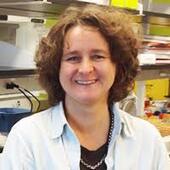

Francesca Teltscher Taylor
Research Associate and Teaching Associate in European Languages (German Studies), Monash University
Less ![]()
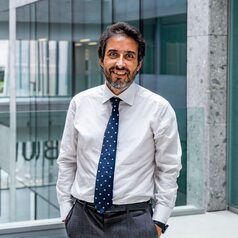
Francesco Billari
Professor of Demography, Bocconi University
I am Professor of Demography and Rector of Bocconi University, Milan. Previously, I worked at the University of Oxford (Department of Sociology, where I also served as Head of Department) and Nuffield College (where he was a Professorial Fellow), and at the Max Planck Institute for Demographic Research (Head of the Independent Research Group on the Demography of Early Adulthood). I also served as President and Secretary-General/Treasurer of the European Association for Population Studies, and I received the 'Clogg Award' from the Population Association of America in 2012. I am a Fellow of the British Academy, and an affiliate of the Population Studies Center, University of Pennsylvania.
Less ![]()
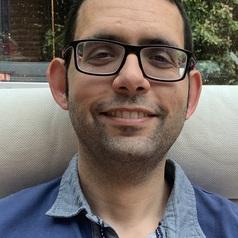
Francesco Crea
Professor (Cancer Pharmacology), The Open University
I am an MD PhD with extensive experience in world-leading cancer research centres (NCI-USA, BC Cancer Agency). My lab at the Open University investigates the role of long non-coding RNAs in cancer progression (http://www.open.ac.uk/people/fc3298).
At the Open University, I also teach Immunology, Physiology and Cell Biology.
Less ![]()

Francesco De Pascalis
Senior Lecturer in Financial Law, Brunel University London
Dr Francesco De Pascalis joined Brunel Law School in 2017. Before that, he worked as a research fellow at the 'Chair for Law and Finance' held by Professor Kern Alexander at the University of Zurich, which he joined in 2013. He has also taught, as external lecturer, at the Institute of Advanced Legal Studies (IALS), University of London. He qualified as a Solicitor in Italy in 2008.
Dr De Pascalis currently holds external examiner positions at the University of Glasgow-Law School. Dr De Pascalis's research interests include banking and finance law, financial regulation, digital finance and technology, and sustainable finance.
His monograph Credit Ratings and Market Over-reliance: An International Legal Analysis (Brill-Nijoff 2017) is the first book analysing, from a legal perspective, the phenomenon of investors' over-reliance on external credit ratings and providing a critical assessment of the post-crisis regulatory strategies to tackle the phenomenon in question.
At present, Dr De Pascalis is working on two book projects: Open Banking: Global Development and Regulation (forthcoming Routledge 2023) in co-authorship with Dr Monomita Nandy (Brunel Business School) and Dr Alan Brener (UCL), which will be part of the Routledge International Studies in Money and Banking series'; and Principles of Law and Finance (forthcoming Edward Elgar 2026).
Less ![]()

Francesco Grillo
Academic Fellow, Department of Social and Political Sciences, Bocconi University
Less ![]()
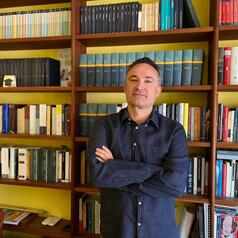
Francesco Moscone
Professor of Business Economics, Ca' Foscari University of Venice, Brunel University London
Francesco Moscone leads the area of Healthcare Management and Wellbeing at BBS, where his research concentrates on sustainable health expenditure, exploring potential savings from both demand and supply perspectives. On the demand side, he examines scenarios such as potential savings if the smoking population transitions to reduced-risk products like vaping, if heavy drinkers shift to moderate drinking, and if individuals become more physically active. On the supply side, his research explores questions such as the productivity gains in hospitals if physicians adopt more cost-effective medical technologies.
Francesco is Professor of Business Economics, former Division Lead for Organisations and People, former head of the Centre of Research into Entrepreneurship, International Business in Emerging Markets, former Director of the MBA programs, and former Director of Internationalisation. He also teaches policy evaluation at the University Ca' Foscari University of Venice. He has previously worked at the University of Leicester, University of Cambridge, London School of Economics (LSE), University of Bergamo, and the Catholic University of the Sacred Heart Rome. He has held visiting scholar positions at University of California-Berkeley, University Pompeu Fabra, and LSE. He has worked as health economist for the National Collaborating Centre for Women and Children's Health, and the National Agency for Regional Health Services. Francesco has been co-investigator of a major EPSRC (UK government funding) grant entitled "Semantic Credit Risk Assessment of Business Ecosystems". He has also been the principal investigator on an ESRC (UK government funding) research grant entitled "Statistical Modelling of Interdependence in Economics", and on the UK part of a major EU grant entitled "Biopool- Services associated to digitalise contents of tissues in Biobanks across Europe". Further, he has acted as co-investigator for the grant "Economic Performance and Quality of Life in European Cities" awarded by the Economics Education and Research Consortium. Francesco has served as associate editor for Economic Modelling and he is currently associate editor for the journal Empirical Economics and a Senior Member of ESRC Peer Review College. Francesco is also a co-editor, with Professor Badi H. Baltagi, of Contributions to Economic Analysis, Emerald Publishing. Francesco's studies have garnered widespread global media attention, with over 800 citations and full interviews from North America, Central and South America, Europe, and the Middle East. His work has been featured in various newspapers and magazines, including but not limited to The Independent, The Times, Metro, Standard, Daily Mail, Daily Express, The Bulletin (by Executive), Kuwait News,The Egyptian Gazette, Malina Standard, Politics Home, Presa Latina, La Razon, Dossier Politico, Arab News, La Repubblica, Venerdi’ di Repubblica, Corriere della Sera, Unita’, ANSA, Panorama della Sanita’, Abruzzo Economia, About-Pharma, Il Giornale, La Stampa, Libero, il Sussidiario, Il Sole 24 ore, In Terris. He has also been interviewed on the UK TV program GB News by Nigel Farage, and on the radio by Martin Stanford for LBC. Additionally, his research was discussed on the Israeli television Channel 9.
Here you can follow Francesco on LinkedIn and X (better known as Twitter)
https://www.linkedin.com/in/francesco-moscone-86551659
Francesco Moscone (@MosconeF) / X https://twitter.com/MosconeF?shem=iosie
Less ![]()
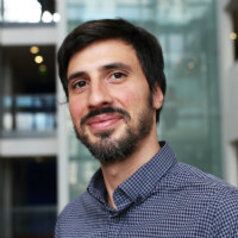
Francesco Rigoli
Reader in Psychology, City, University of London
I am a cognitive and social psychologist based at City, University of London. My research focuses on exploring the psychosocial processes at play in important domains such as politics, religion, morality, social status dynamics, and social media interactions.
Less ![]()
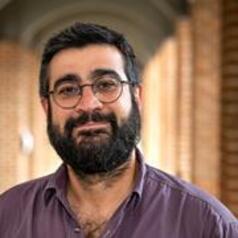
Francesco Ventrella
Senior Lecturer in Art History, University of Sussex
Dr Francesco Ventrella holds degrees in Art History from ‘La Sapienza’ University of Rome (BA, MA) and the University of Leeds (PhD). In 2006 he was Visiting Fellow at the CentreCATH, University of Leeds and received a British Academy and Accademia dei Lincei Postgraduate Research Bursary in 2007. After first joining the Department of Art History at Sussex in 2012, Francesco was awarded a Leverhulme Early Career Research Fellowship (2013-2016) and has been the recepient of the Paul Mellon Rome Fellowship at the British School at Rome (Spring 2019).
Francesco was a member of the ‘Writing Art History’ Research Forum at the Courtauld Institute (2007-10), and has served in the Humanities panel for the British Council and the Newton Fund. A former editor of parallax (2008-2011), he is now a member of the editorial board of Art History.
Francesco is affiliated with the Centre for the Study of Sexual Dissidence: https://www.sussex.ac.uk/research/centres/centre-for-study-of-sexual-dissidence/about/people
Less ![]()


Francesco Perono Cacciafoco
Associate Professor in Linguistics, Xi'an Jiaotong-Liverpool University
Dr Francesco PERONO CACCIAFOCO (Ph.D. University of Pisa, Pisa, Italy, 2011) is, currently, an Associate Professor in Linguistics at Xi'an Jiaotong-Liverpool University (XJTLU), School of Humanities and Social Sciences (HSS), Department of Applied Linguistics (LNG), Suzhou, China, where he teaches Historical Linguistics (LNG307), Language Documentation (LNG210), and History of English (LNG105).
Before joining XJTLU, he was a Senior Lecturer in Historical Linguistics at the Linguistics and Multilingual Studies Programme (LMS), School of Humanities (SoH), College of Humanities, Arts, and Social Sciences (CoHASS), Nanyang Technological University (NTU), Singapore, where he was teaching Historical Linguistics, Etymology, Language and Oral Tradition, Historical Semantics, and History of Cryptography. At NTU, he was also the Latin Language Lead Coordinator at the Centre for Modern Languages (CML).
He got his Master of Arts in Classical Philology and Historical Linguistics (with a Dissertation on the History of the Latin Language) and his PhD in Historical Linguistics, Greek and Latin Philology and Literature, and Comparative Literature (with a Dissertation on the Historical Development of the Late Latin Language and Poetry) at the University of Pisa (Pisa, Italy), working with Prof. Claudio M. Moreschini and Prof. Maria G. Arcamone.
His Research expertise and interests are mainly focused on Historical Linguistics, on the etymological reconstruction of Indo-European (prehistoric) place names (Historical Toponomastics), on the study of Aegean Civilizations and Scripts, on the documentation of languages from South-East Asia belonging, in particular, to the Papuan and Austronesian families, and on the History of Cryptology and Crypto-linguistics. His academic background includes also Comparative Literature, Classical Philology, Theoretical Linguistics, Historical Geography, and Paleoanthropology. He has mainly studied, in these fields, Contemporary Western Poetry and the parodic Literature of Medieval and Renaissance Europe, oral (Homeric) Literature in Ancient Greece, the History of Greek and Roman Medicine and Medical Literature, the relations between landscape and the naming process of place names, and the prehistory of languages in Europe and Asia.
An Etymologist and Historian of Languages, he has developed Research work in Historical Linguistics and Mycenaeology at the University of Pisa (Pisa, Italy) and he has taught, as a Contract Professor, Comparative Literature and History of Greek and Roman Medical Literature at the International University of Pollenzo - UNISG (Pollenzo, Italy).
He has published around 80 Research works (papers, books, conference talks, book reviews, and chapters in academic books) and he is the first Author of the academic handbook Place Names: Approaches and Perspectives in Toponymy and Toponomastics (2023), published by the Cambridge University Press. In the field of Indo-European Linguistics, he has developed the so-called New Convergence Theory (NCT) on Indo-European origins, working, among others, with Dr Guido Borghi (University of Genoa, Genoa, Italy) and Prof. Martin Bernal.
He is the recipient of the Nanyang Technological University (NTU), School of Humanities (SoH), Lecturers Excellence (LEX) Award 2018 (Best Lecturer).
Francesco is an Academic Mentor and Reviewer at the Linguistic Society of America (LSA), where he is also a Member of the Committee on Endangered Languages and Their Preservation (CELP).
Academic Profile: https://scholar.xjtlu.edu.cn/en/persons/FrancescoPerono
Less ![]()

Francine Ntoumi
Research Group Leader, Institute for Tropical Medicine , University of Tübingen
Francine Ntoumi is Founder, Chair and Executive Director of the Congolese Foundation for Medical Research, Republic of Congo, lecturer in Immunology at the University Marien Ngouabi, Republic of Congo, and Research Group Leader at the University of Tübingen, Germany. She is a member of several scientific committees and international scientific networks in Africa and Europe and serves as a reviewer for a number of leading scientific journals. Her main area of research is malaria, and throughout her career she has trained African scientists of various nationalities in disciplines such as immunology and molecular epidemiology.
Less ![]()
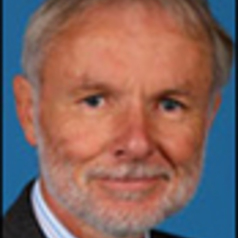
Francis Green
After graduating in Physics at Oxford, I switched to economics with an MSc at the London School of Economics, before writing my PhD thesis on the theory of saving at Birkbeck College. I began my career at the age of 22 at Kingston Polytechnic. After spells at the Universities of Massachusetts, Leicester, Leeds and Kent, I moved to the LLAKES research centre at the Institute in April 2010.
My general interests lie in labour economics, education and political economy. I maintain an interdisciplinary approach in both research and teaching. My research covers three overlapping areas: skill formation in schools and workplaces, the role of unions, and the analysis of job quality.
Less ![]()

Francis Hassard
Reader in Public Health Microbiology, Cranfield University
Francis's postdoctoral research focused on the study of biogeochemical determinants of water quality and nutrient dynamics taking whole catchment approaches. His PhD research focused on biofilm reactors for wastewater treatment and the study of hazardous micro-pollutants. His first degree was in Marine Biology at the University of Southampton, where he also achieved a distinction in a Masters on the same topic. Before joining Cranfield, Francis worked at Bangor University as a Research Associate and Atkins Global as a technical specialist in water quality and environmental modelling.
Less ![]()
- Market Data





















